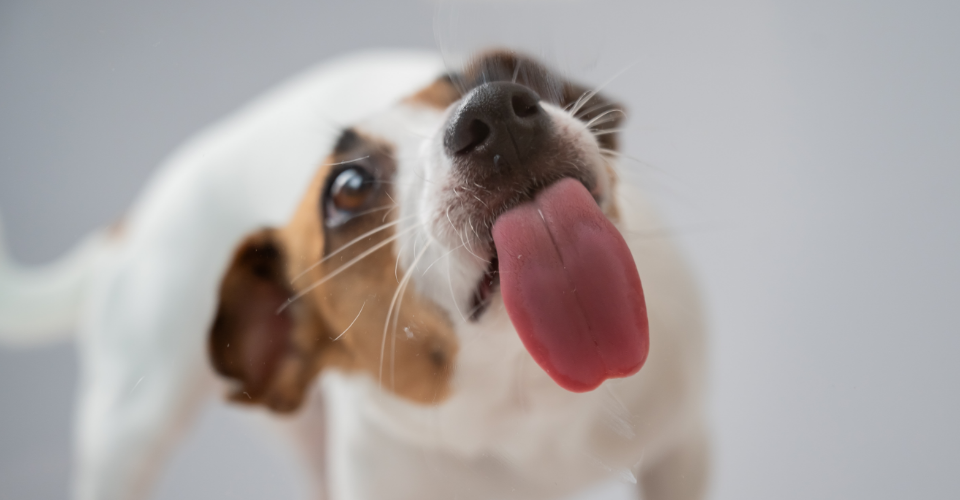Dogs are known for licking, as it’s a natural behaviour that helps them explore their environment and express themselves. But when licking becomes excessive, it can signal underlying issues that might need your attention.
Causes of Excessive Licking
Behavioural Reasons
- Boredom or Anxiety: Licking can be a way for dogs to self-soothe, as it releases relaxing hormones like dopamine. Look for triggers such as being left alone (separation anxiety) or a lack of mental stimulation.
- Affection or Attention-Seeking: Dogs may lick their owners or other pets as a sign of affection, mimicking the nurturing licks they received as puppies. Sometimes, it’s simply a way to say hello or grab your attention.
- Habit or Comfort: For some dogs licking becomes a habit, much like humans biting their nails or twirling their hair.
- Taste or Hunger: Dogs might lick their lips because they’re hungry, or they might lick you because they enjoy the salty taste of your skin.
Medical Reasons
- Allergies: Skin allergies triggered by pollen, food, or fleas can cause intense itching, leading to excessive licking.
- Infections: Bacterial, fungal, or parasitic infections can irritate the skin. Fleas, ticks, or hot spots (infected skin areas) are common culprits.
- Pain or Discomfort: Dogs might lick a specific area, like a joint to soothe pain caused by arthritis or injury.
- Gastrointestinal Issues: An upset stomach can prompt dogs to lick unusual surfaces, the air, or their abdomen. Research suggests that up to 60% of dogs with excessive licking behaviours may have a GI disorder.
- Neurological or Cognitive Issues: Neurological conditions or age-related cognitive dysfunction can lead to compulsive licking.
- Dental Problems: Oral pain, lesions, or dental disease might lead to increased licking often accompanied by bad breath.
How to Help a Dog That Licks Excessively
For Medical Causes:
- Treat Allergies: Work with your vet to identify allergens and manage symptoms with medications or dietary changes.
- Address Skin Conditions: Use flea and tick prevention and treat infections promptly.
- Manage Pain: Joint supplements, arthritis medication, or prescribed pain relievers can help reduce discomfort.
- Treat GI Issues: Diet adjustments or medication may alleviate gastrointestinal distress.
For Behavioural Causes:
- Mental and Physical Stimulation: Engage your dog with toys, games, and regular exercise to combat boredom.
- Redirect Attention: Use commands like “leave it” and reward your dog when they stop licking.
- Avoid Reinforcement: Ignore your dog when they lick excessively for attention to help break the habit.
- Calming Environments: If anxiety is the root cause consider calming aids like vests or pheromone diffusers.
- Seek Professional Help: A dog trainer could help address compulsive behaviours.
When to See the Vet
While occasional licking is harmless, excessive licking often results in negative side effects, such as:
- Hair loss or bald patches.
- Skin redness, irritation, or discharge.
- Disrupted sleep due to constant grooming.
- Whimpering or discomfort while licking.
- Neglect of normal activities like playing.
If you notice these signs, your dog may be dealing with more than just a quirky habit. Early intervention can prevent further complications and help your pup feel better sooner.



